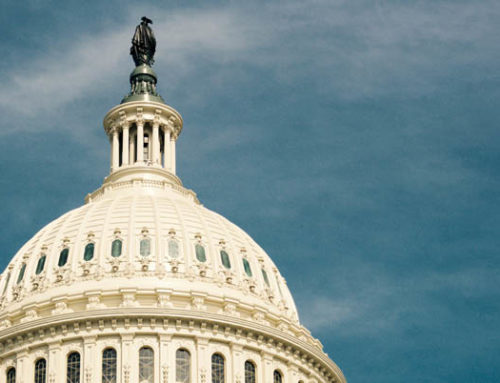Comptroller Glenn Hegar Announces Transfer of $2.27 Billion Into State Highway and Rainy Day Funds
Texas Comptroller Glenn Hegar announced today the transfer of $2.27 billion into the State Highway Fund and the Economic Stabilization Fund (ESF), which is commonly known as the Rainy Day Fund. Each fund received more than $1.13 billion, or 50 percent of the total transfer.
The transfer amounts are based on whether oil production and natural gas production tax revenues exceed 1987 collections. If either tax is greater than the 1987 threshold, an amount equal to 75 percent of the excess is transferred.
In November 2014, a constitutional amendment was passed allocating at least one-half of these severance taxes to the ESF and the remainder to the State Highway Fund for use on non-toll highway construction, maintenance and right-of-way acquisition.
The transfer to the ESF must occur within 90 days following the end of the fiscal year according to the Texas Constitution. At the end of the state’s fiscal year — Aug. 31, 2015 — the balance in the ESF was $8.46 billion. The new balance after today’s transfer will be $9.61 billion.
“The state’s Rainy Day Fund is now at a record high, allowing the state to maintain a strong fiscal position and protect against unforeseen circumstances,” Hegar said. “Additionally, this healthy transfer to the State Highway Fund will help address the state’s growing transportation needs. All of which will help Texas uphold a strong and healthy economy.”
Texas Education Commissioner Michael Williams stepping down
Back in October, Michael Williams announced he would step down as the state’s top education official in January.
Williams’ 30-year-long resume in state and federal government includes prosecuting members of the Ku Klux Klan as a U.S. Department of Justice attorney and over a decade on the Texas Railroad Commission.
Leading the Texas Education Agency — which involves overseeing the state’s approximately 1,200 school districts and charter schools — is a role that requires both diplomacy and policy chops.
Williams’ successor in the governor-appointed position will inherit an ongoing state funding lawsuit brought by two-thirds of Texas school districts, an uneasy gridlock with the federal government over teacher evaluation policy, and an agency still recovering from drastic 2011 cuts to budgets and personnel. All those problems must be tackled while balancing the demands of state lawmakers, school leaders, and, of course, the governor’s office.
Question now arises as to who Governor Abbott will choose as the next education commissioner.
- A reform champion: With his education platform, Abbott has strived for the support of the homeschoolers, business-oriented accountability groups, charter school advocates, and voucher proponents who make up the education reform movement. So any appointee he selects is likely to at least be palatable to those groups, if not one of their own.
- A veteran school administrator: In its day-to-day function, the agency’s biggest constituents are the school officials who weigh in on and carry out its policies throughout the state. Having a leader who has already earned their respect while coming up through their ranks could be a big help. But anyone Abbott selects from this crowd is also going to need a track record of playing well with the reform movement.
- A politico: Appointing a former lawmaker with an education background has two primary advantages: direct experience with statewide policymaking and (ideally) good relationships with the current elected officials who will be passing the laws that the agency is charged with implementing. Some in this category could also walk the line between the establishment and reform camps.
- An agency insider: Why not eliminate the learning curve and appoint someone from within who can immediately begin making changes that advance the governor’s priorities?
Delay on New Agriculture Fees
After concerns expressed by state lawmakers and the agriculture community, Texas Agriculture Commissioner Sid Miller will wait to hike fees on many licenses, registrations and services that his agency provides.
The fee increases will now kick in Jan. 1 rather than Dec. 1, the Republican announced Friday, saying “much of the feedback” his agency received on its proposal called for “a delay in implementing the new rules to give industry stakeholders additional time to plan for changes.”
Last week, Lt. Gov. Dan Patrick joined industry groups such as the Texas Farm Bureau and at least 72 House lawmakers in opposing the fee increases, which would raise millions of dollars that Miller says are needed for the agency to continue to meet its diverse assortment of duties, including licensing, certifying and inspecting agricultural goods such as eggs.
Miller says the Legislature has left his agency underfunded and increasingly dependent on fees ever since it slashed its budget in 2011. Critics point out that Miller championed those cuts during his days in the Texas House. And they say his recent push for funding before the Legislature would have expanded government rather than addressing the problems he has identified.
While Miller stated that the commission continues to “exhaust every available budget option”, he has requested two “critical budgeting tools” from the Legislative Budget Board that would give the agency more flexibility.
Miller is asking for authority to carry over “unexpended balances,” which would allow him to use any extra fee revenue from 2016 to pay bills in 2017. He also wants more flexibility to transfer revenue between divisions. Under the current setup, specific fees can only be used for specific programs, and fees from one year can’t transfer to the next.
The increases are significant. Prices for field inspections to certify seeds, for instance, would increase anywhere from a few cents to more than a dollar per acre, while application fees would at least double.
Lawmakers and others are calling on Miller to explain the rationale behind each increase.
With the delay, the new fees won’t apply until after Miller directly fields questions from Senate lawmakers. He’s scheduled to appear at a Dec. 8 hearing of the Senate Committee on Agriculture, Water and Rural Affairs.
Elections Update
November 14th began the month-long period that candidates can officially file for office in the 2016 elections. Each candidate must file with their respective party in order to be listed on the ballot. To keep up with the current filings, please visit the Republican Party of Texas and the Democratic Party of Texas.
Check out the recent elections summaries:
Important election dates:
- Filing Period: Saturday November 14th-Monday December 14th 2015 (ends at 6PM on Monday)
- Early Voting for Primary Election: February 16th-26th, 2016
- Primary Election: March 1st, 2016
- Early Voting for General Election: October 24th-November 4th, 2016
- Election Day: November 8th, 2016
Public Hearing/Formal Meeting Notices
Senate Committee on Intergovernmental Relations (Invited Testimony Only)
Chair: Sen. Lucio Time/Date: 9:30 am Wednesday, December 02, 2015
Location: Capitol Extension, E1.012
- Charge 2: Examine the processes used by home rule municipalities to adopt ordinances, rules, and regulations, including those initiated by petition and voter referendum. Determine if additional statutory safeguards are necessary to ensure that ballot language accurately describes proposed initiatives. Identify ways to improve transparency and make recommendations, if needed, to ensure that local propositions and the means by which they are put forth to voters, conform with existing state law.
- Charge 3: Review natural disaster preparedness planning and coordination in the wake of a growing range of threats. Evaluate whether existing processes maximize regional cooperation to rebuild housing and infrastructure, and allow for the timely dissemination of funds to units of local governments for reconstruction following a federal declaration. Develop recommendations, if necessary, to improve the efficiency of disaster recovery efforts, incorporating best practices identified from other states, as well as lessons-learned from past reconstruction efforts in Texas.
- Charge 6: Examine ways to improve government accountability in elections regarding the issuance of public debt. Include a review of the information that is currently provided to individuals in the voting booth and provide statutory recommendations, if necessary, to improve transparency.
Senate Committee on Veteran Affairs & Military Installations (Invited Testimony Only)
Subcommittee on Border Security
Chair: Sen. Birdwell Time/Date: 11:00 am Thursday, December 03, 2015
Location: Capitol Extension, E 1.012
- Sanctuary Cities charge: “Study the various sanctuary city policies statewide, the number and types of crimes committed by previously arrested illegal immigrants within the jurisdiction of a “sanctuary policy”, and possible solutions to discourage governmental entities from putting in place policies that conflict with immigration laws. Make recommendations to improve community safety.”
Senate Committee on Education
Chair: Sen. Taylor Time/Date: 10:00 am Monday, December 07, 2015
Location: Capitol Extension, E1.028
- Study the approval, expansion, and revocation of public charter schools in Texas, including the implementation of SB 2 (83R) and other legislation. In particular, examine the issues surrounding the disposition of state property when charters are revoked, non-renewed, or cease to operate. Make recommendations regarding policies to ensure an efficient and effective transfer and disposal of state property that preserves state interest while ensuring that certain investment capital and the bond market supporting charter construction remains robust. In addition, make recommendations if needed to clarify policies regarding expansion of existing high-quality charter schools in Texas. Additionally, examine facility funding for charter schools in other states and make recommendations on facility funding assistance for charter schools in Texas.
- Study the recent rise of inappropriate teacher-student relationships, the impact of social media interaction between teachers and students, and examine the current efforts by the Texas Education Agency, schools, law enforcement, and the courts to investigate and prosecute any educator engaged in inappropriate relationships. Determine what recommendations, if any, are needed to improve student safety, including increasing agency staff, adjusting penalties, and strengthening efforts to sanction educators’ certificates for misconduct. Study and address the issue of prevention through training and education of school employees
Senate Committee on Agriculture, Water & Rural Affairs (Invited Testimony Only)
Chair: Sen. Perry Time/Date: 9:00 am Tuesday, December 08, 2015
Location: Capitol Extension, E1.012
- Study and make recommendations on improving the law in this state regarding agricultural liens under Chapter 70, Agricultural Code. The study should include whether sufficient safeguards exist to protect the financial interest agricultural producers have in their product.
- Study and make recommendations on the effects of windblown and waterborne litter. The study should include an analysis of the economic effects of litter, any necessary methods to prevent and remediate litter, and an assessment of state and local programs to reduce litter.
- Study the economic benefits the Texas Department of Agriculture’s Market Development Services provide to the state through promoting Texas Agricultural products. Review the current marketing services and strategies available to Texas producers and determine additional resources necessary to increase the Market Development Services capabilities. Make recommendations for legislative action, if needed.
- Study and make recommendations on improving the laws regarding the management of game animals, production of domestic fowl, and development of agricultural products in the State to reduce the occurrence and spread of disease and harmful pests.
House Committee on Appropriations (Invited Testimony Only)
Chair: Rep. Otto Time/Date: 10:00 am Thursday, December 10, 2015
Location: Capitol Extension, E 1.030
- Testimony regarding the Texas Child Support Enforcement System 2.0.
House Committee on State Affairs (Invited Testimony Only)
Chair: Rep. Cook Time/Date: 1:30 pm Thursday, December 10, 2015
Location: Capitol Extension, E 1.014
- Examine state and local laws applicable to undocumented immigrants throughout the State of Texas and analyze the effects of those laws in conjunction with federal immigration laws and the policies and practices followed by U.S. Immigration and Customs Enforcement.
Joint Committee on Health and Human Services Transition, Oversight
(Invited Testimony Only)
Chair Sen. Nelson, Rep. Price Time/Date: 1:30 pm Monday, January 25, 2016
Location: Capitol Extension, E1.036
Senate Committee on State Affairs (Invited Testimony Only)
Chair Sen. Huffman Time/Date: 9:00 am Tuesday, January 26, 2016
Location: Capitol Extension, E1.016
- Monitor the implementation of open and campus carry legislation and determine if the current laws regulating the places that handguns can be carried are easily understood or if clarification is needed to ensure the average citizen understands when, where, and under what circumstances it is lawful to carry a weapon, versus when it is a criminal offense for which there may be a defense.
Senate Committee on Finance
Chair Sen. Nelson Time/Date: 1:00 pm Tuesday, January 26, 2016
Location: Capitol Extension, E1.036
- Monitor the state’s progress in coordinating behavioral health services and expenditures across state government, pursuant to Article IX Sec. 10.04. Identify ways state agencies that provide mental health services are collaborating and taking steps to eliminate redundancy, create efficiency, utilize best practices, ensure optimal service delivery, and demonstrate expenditures are coordinated and in furtherance of a behavioral health statewide strategic plan. Identify barriers that prevent the coordination of behavioral health services. Make recommendations to maximize use of state funding for mental health.






